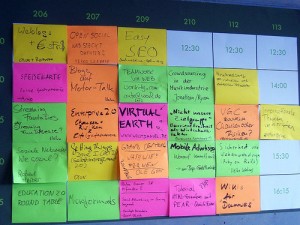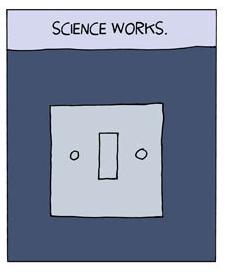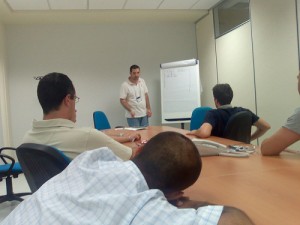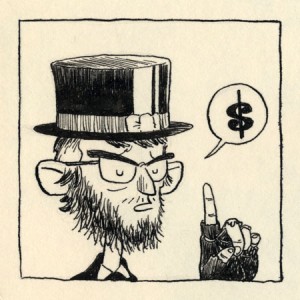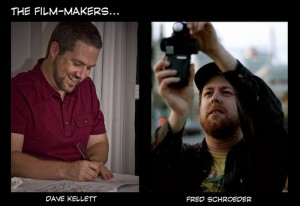T-Minus Ten Days And Counting
Programming for SDCC is up, and despite the fact that the “webcomic” tag doesn’t seem to be in use this year¹, I have plowed through and found those sessions that are most intersecting with the interests of this page. As usual, I’ve probably missed some, so let me know of any that should be included, yes?
Thursday
11:30-12:30 Room 4
Spotlight on Karl Kerschl
All you need to know is that Kerschl will be live-drawing The Abominable Charles Christopher
12:00-1:00 Room 32AB
Spotlight on Bill Amend
Fox Trot is about as close as you can get to webcomics sensibility and have a 20+ year history of syndication, and Amend is at the forefront of the syndicated creators in adapting to digital
1:00-2:00 Room 25ABC
Trailblazers of Comics
Lynn Johnston and Kate Beaton in conversation with Heidi Mac, who is the best at moderating.
Friday
12:00-1:00 Room 32AB
Oni Press: RevolutiONIze Comics
I’d be pointing you towards this panel, given the number of webcomicky creators that are/have worked with Oni, but on the list of Q&A panelists, one name jumped out at me:
Which makes me wonder if there’s more than one. Scott C also listed, although all of this sites seem to be down right now. =(
1:30-2:30 Room 5AB
Spotlight on Kate Beaton
Self-explanatory, really.
2:00-3:00 Room 23ABC
BOOM! Studios: Adventure Time Comic Book
Everybody you’d expect from the show talking about the wildly popular comics. Frankly, I think this room may be undersized, considering that Meredith Gran’s Marceline and the Scream Queens will just be dropping.
5:00-6:00 Room 24ABC
Business of Webcomics
Robert, Scott, and Brad lay it all out for you.
7:00-8:00 Room 25ABC
Stripped: The Comics Documentary
Freddave Kellett-Schroeder and their editor, Ben Waters, will be talking about the film and dropping the name of a participant that will blow your mind. Hope you didn’t need that mind anymore ’cause it won’t be in an un-blown state ever again.
Saturday
11:00-12:00 Room 25ABC
Shifty Look
Namco Bandai Games are dropping new comics based on old games faster than you can keep up with them. If you’ve been following the Dig Dug tribute comics, I am reliably informed that Scott and Kris (Kris and Scott) will have an announcement that will be of interest to you.
2:30-3:30 Room 5AB
Penny Arcade Q&A with Gabe and Tycho
Always funny.
3:00-4:00 Room 9
Spotlight on Doug Savage: Why Did the Chicken Cross the Road?
How great are comics that you can have a crappy day at the office and scribbling a chicken on a Post-It leads to a career? Pretty great.
3:30-4:30 Room 26AB
Kickstarter Changes Comics
There are a couple of sessions that deal with Kickstarter directly or indirectly; this is the one most focused on comics to my eye. If you go, pay special attention to my sister in nerdiness, Cartoon Books (aka BONE) publisher Vijaya Iyer, on account of unless you’re one of those LHC people who maybe found the God particle today, she is smarter than you.
Sunday
2:00-3:00 Room 4
Kickstarting Your Webcomics Career: Keenspot 2012
Case in point — this panel isn’t about Kickstarter per se, but if you’ve got somebody on the panel that raised a metric squatload of money on Kickstarter, you’d mention it in the title, too. I have a feeling that Jim Zub will get a chance to talk about his own work here more than other panels he’s on during the weekend, so if you love skulls and the kicking thereof, now’s your chance.
3:00-4:00 Room 6DE
Axe Cop
Axe Cop TV show? Axe Cop TV show.
I’ll be doing my best to attend these sessions (obviously, except for where they overlap), and trying my damndest to avoid the Hall H line at all other times. See y’all there.
_______________
¹ This could either be a good thing or a bad thing, depending on if you read it as a marginalization of webcomics, or a recognition that webcomics and comics are not entirely distinct things.
